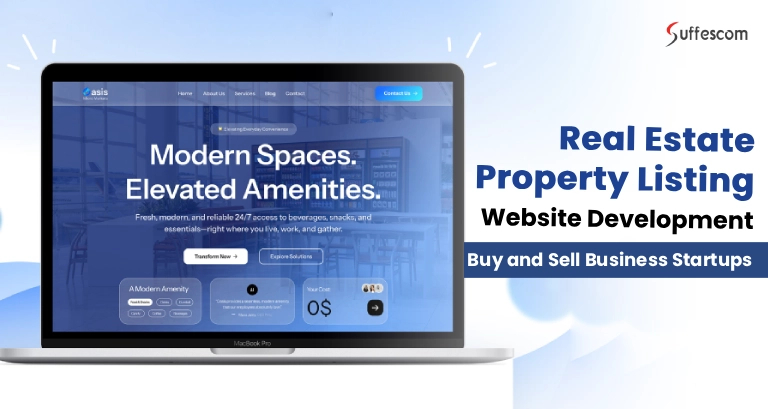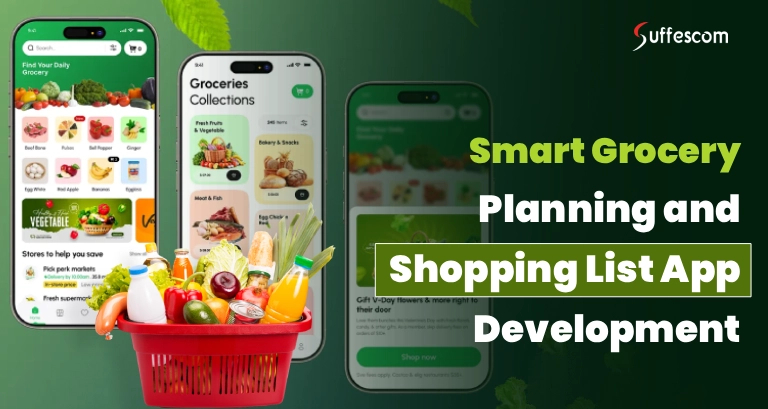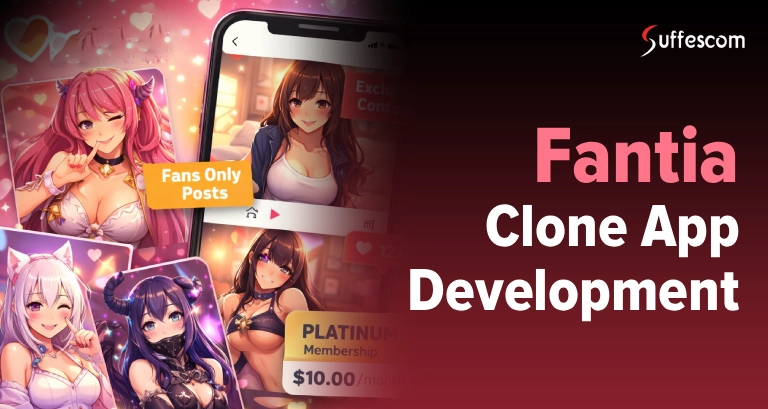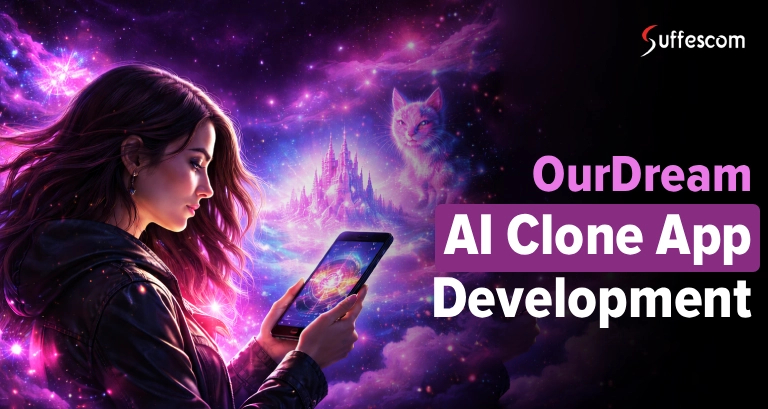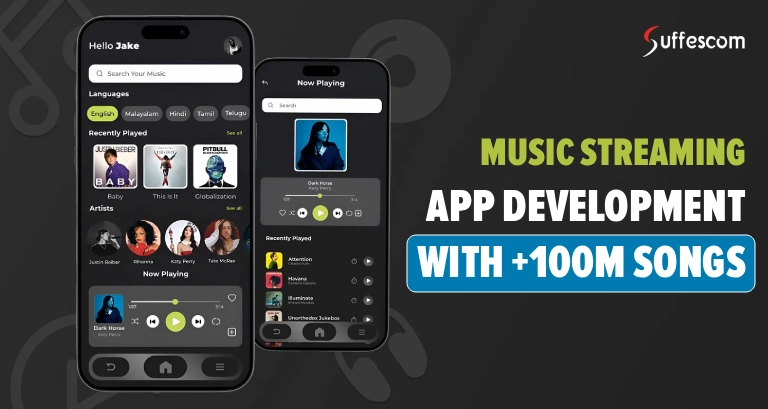Steps to Build AI Enabled Personal Health Coach App
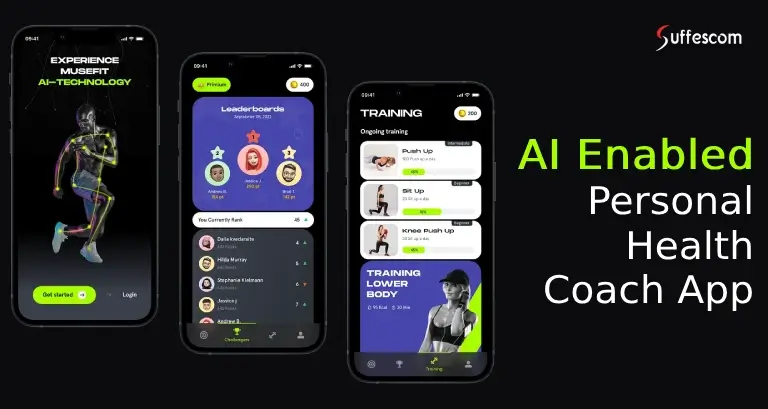
Think about the idea of having a personal coach with you 24/7 a digital mentor that keeps track of your workouts and reminds you to drink water, analyzes your stress levels, and even anticipates what may happen and when before it occurs. With an AI-powered personal health coach application, that is the promise.
Health and wellness are not about reactive treatment in 2025 but proactive and personal care. As AI and wearable technology start to gain widespread use, people can now trust in smart digital assistants, which do not only track their performance but also provide the full-fledged lifestyle coaching.
To businesses, startups, and healthcare providers, it is not just a tech trend to build such an app, but a strategic opportunity. Now we will discuss what AI-based health coach applications are, their functionality, how they are developed, their costs, and how to build one that users will love.
What is an AI Personal Health Coach App?
An AI Personal Health Coach app can offer personalized fitness/wellness recommendations and analyze user data. These types of apps are effective for progress tracking, aiding a healthier lifestyle, and providing continuous help.
There is a vital role of AI in health monitoring apps, take a look below;
- Artificial Intelligence (AI): To make predictions, track habits and provide one-on-one advice.
- Natural Language Processing (NLP): To support conversational coaching using chat or voice.
- Wearable Integration: To monitor vitals, activity and sleep in real-time.
- Predictive Modeling: To forecast the risks and propose preventive care.
That is why the AI health coach apps are a comprehensive method of physical activity, fitness, prevention of chronic diseases, and mental health.
Market Takeaways And Growing Demand of AI-Powered Health Coach App
In today’s hyper-connected healthcare landscape, users want more than basic tracking. They demand real-time insights, personalized advice, and intelligent health guidance. Thus AI-powered personal health companion apps are changing the entire game. These intelligent tools combine real-time data and machine learning to offer insights when users actually need them. And the market? It’s booming. The Global Artificial Intelligence in healthcare market stood at US$21.66 billion in 2025 and is growing with a CAGR rate of 38.6%. There is an increasing need for early detection of conditions such as dementia and cardiovascular disorders.
For wellness brands, startups, and healthcare providers, this isn’t just a trend. It’s a chance to lead. A smart AI health app can boost user engagement, lower costs, and help deliver better care. Studies even show that AI platforms may reduce diagnostic errors by up to 30% and cut admin work by 10–15%. In this blog, we’ll break down the exact steps to build a future-ready AI health companion app, built for real users and real results.
Types of AI Health Coach Apps
The AI coaching applications can be tailored on various niches based on the requirements of the user. These are the most common categories:
1. AI Fitness Coach Apps
Recommend exercise programs, customize nutrition advice, and assist in monitoring activity levels. The applications track users' calorie intake, recommend dietary changes, and motivate users with their physical fitness targets. AI fitness coach applications motivate, inspire and support users in maintaining a ‘fitness’ lifestyle.
2. AI Mental Wellness Coaches
Provides users with emotional and psychological health assistance. They are beneficial in fighting stress and anxiety using guided mindfulness exercises, breathing exercises, and mood trackers. AI mental wellness coaches continuously analyzes user activity and responses to offer recommended changes that improve mental resilience, and leads to healthy mental state.
3. AI Lifestyle & Habit Coaches
AI lifestyle & habit coaches help users adopt healthier day-to-day habits that develop, by monitoring and focusing on habits; sleep quality, hydration, and productivity. The apps will track quality of sleep, remind users to hydrate, and suggest productivity techniques that are based on users' habits.
4. Chronic Condition Management Coaches
These applications work well with chronic conditions, like diabetes, hypertension, and obesity. They offer assistance to patients who need to monitor vitals and are on a restricted diet. The AI supports the user for better self-management and lowers risks, with an emphasis on self-care.
5. Holistic Personal Health Coach Apps
Holistic Personal Health Coach apps group multiple health categories across types of health within one setting - fitness, mental wellness, lifestyle habits, and chronic condition management. Such apps recognize that an all-in-one function is a comprehensive coaching program and delves into using multiple sources of health data and location.
Ready to Launch Your AI Powered Personal Health Assistant App?
Let’s build a scalable, HIPAA-compliant solution tailored to your users’ wellness journey. Talk to our experts today.
Must-Have Features of AI Personal Health Coach Apps
Creating a scalable and solid AI-driven personal health assistant application takes more than having a clever interface. It requires well-planned features that drive user engagement, ensure regulatory compliance, and yield quantifiable health benefits. The following are key features businesses need to focus on when creating an AI health companion app:
1. Conversational AI Assistant
Conversing through chat or voice is more intuitive and friendly than standard web app features, supporting real-time encouragement, health recommendations, or answers to questions. Whether setting goals, asking questions about symptoms, or adjusting plans, users can benefit from a virtual coach that feels connected and human-like.
2. Symptom & Lifestyle Tracking
AI health apps have symptom & lifestyle tracking as a feature, allowing users to take daily logs, monitor vitals like heart rate or blood pressure, and record sleep quality. Accumulated data collection on a daily basis means the AI will be able to create better recommendations and also track early signs of health problems to promote prevention and/or possibly a lifestyle change.
3. Custom Meal & Workout Plans
AI-based apps are great at designing custom meal & workout plans that take into consideration the user’s fitness ability, preferences, goals, and health conditions. These types of plans are "automatic" and adapt as the user progresses towards their fitness journey.
4. Goal Setting & Progress Analytics
It is one of the primary features of an AI personal health coach app, which helps users to track their progress in a visual format, whether to lose weight or to sleep better. The AI analyzes this data to modify the user's specific program, celebrate progress milestones, and maintain engagement by showing quantifiable progress.
5. Reminders and Notifications
Reminds patients of medications, hydration, and sleep schedules. It also allows the user to customize the alerts to their own schedule, increases the chance for compliance without getting overwhelmed..
6. Wearables and IoT Device Integration
Wearables and IoT Devices such as Fitbit, Apple Watch, and Oura Ring enable the app to automatically synchronize the devices' real-time health data. Health monitoring devices provide visibility into activity levels, sleep patterns, heart rates, etc, providing a more accurate and data-backed health coaching and recommendations.
7. Multilingual Ability
Reaches a wide range of audiences in the form of language options and features such as text-to-speech, voice commands, and screen reader support. It helps users with disabilities to include everyone in health coaching and ultimately make it globally accessible.
8. HIPAA/GDPR Compliance
Enable the user to have knowledge of how their data is stored, processed, and shared if relevant. Adhering to these data security standards not only keeps users' information private and builds trust, it reflects a commitment to their personal health information being secure and or shared correctly.
Advanced Features of an AI Personal Health Coach App Enhancing Engagement
Emotion Recognition AI
Emotion Recognition Artificial Intelligence is capable of detecting user emotion through signs such as facial expression, tone of speech, or explicit user input. By determining whether the user is stressed, anxious, or motivated, the app will only suggest different coaching methods. In stressful situations, it may suggest taking a break for some calming mindfulness exercises, while in a motivated state, the app may suggest energizing workouts.
Predictive Health Analytics
Uses AI to assess past and present health data to produce risk scoring for conditions like diabetes and heart disease. It anticipates potential health risks, encourages preventive care & provides users with the tools to manage their health.
Gen AI-driven Personalized Recommendations
Provide health recommendations that are tailored according to data and health preferences. It offers new exercise plans, meal options, or mental wellness strategies to consider, and changes over time to provide the most relevant and actionable health suggestions.
Gamification & Reward Systems
Includes badges, points, awards, challenges, and various other motivators to improve motivation and user engagement. Gamification helps users with their journey to form their routines and manage their progress, while having a fun and engaging way of improving their health.
Voice-enabled Coaching for Hands-free Use
With this feature, users can get suggestions and use voice input, resulting in a hands-free experience. It works well while doing various activities like workouts, cooking, etc, without looking at a screen.
Blockchain for Data Security & Trust
Blockchain technology increases data security through decentralizing of user transactions and health records in a tamper-proof ledger. This improves data security & transparency, enabling users to control & access their data and increasing trust in the app's private activities.
Glimpse of Basic Vs Advanced Features
| Feature | Basic | Advanced |
| Conversational AI Assistant | Real-time Chat or voice support | Human-like interactions |
| Lifestyle Tracking | Daily logs for vitals | Anticipate health risks |
| IoT Device Integration | Real-time data on activity (heart rate, sleep) | Deeper insights with actionable suggestions |
| Workout Plans | Automatic meal and workout plan generation | AI-driven meal & workout plans with real-time adjustments |
| Progress Analytics | Visual progress tracking | Advanced analytics with personalized milestones |
| Reminders | Notifications with customizable alerts | Smart reminders with contextual awareness |
| Multilingual Ability | Supports multiple languages | Multilingual support with accessibility features |
| Compliance | Secure data a/c to HIPAA/GDPR | Enhanced security with blockchain |
| Gamification | N/A | Includes rewards & points boosting motivation |
| Voice-enabled Coaching | N/A | Hands-free workout sessions |
| Gen AI-driven Personalized Recommendations | Basic recommendations based on user inputs | Hyper-personalized suggestions adapting over time |
Why Invest in an AI Personal Health Assistant App?
Health and wellness are no longer limited to clinics only. Nowadays, consumers expect continuous, customized support through digital platforms. This change is creating space for a new category, which is AI-powered personal health assistant apps. For businesses in healthcare, insurance, wellness, or digital health, empowering these tools is strategic.
1. Market Demand Is Shifting Fast
Healthcare is going digital day by day, and AI is a core part of that transition. The growing demand for mental wellness is pushing providers to innovate. People want tools that perfectly fit their lifestyle, not systems that wait for them to get sick. So the businesses that stick with it are gaining popularity.
2. It Solves Real Problems for Enterprises
An AI health companion app minimizes dependency on human work. It supervises routine queries, monitors user health data, and offers personalized advice. It gives less burden on staff, which leads to better user engagement and more reliable data. For wellness brands, it generates new revenue opportunities such as premium plans or B2B wellness integrations.
3. AI Adds Precision to Preventive Care
Traditional health systems are reactive. AI changes that. It can detect signs earlier, help users stay on track, and guide them before issues grow. This is where long-term value works not only for end users but for businesses that want to improve outcomes and lower overall care costs.
Benefits of AI-Enabled Health Coach Apps
For Users:
Personalized Guidance Anytime, Anywhere
Provides customized guidance and support about lifestyle changes such as nutrition and exercise anytime, live. It helps clients receive timely, relevant coaching wherever they are, and helps them stay on track during their health journeys.
Improved Lifestyle & Preventive Care
AI personal health apps notice early signs of health issues and provide preventative recommendations. This empowers recognition of achievements, encourages goal-setting to stay connected, and promotes positive behavior for long-term health benefits.
Motivation via Real-Time Tracking & Feedback
Provides users with real-time feedback regarding progress and achieved milestones, so they stay motivated and reinforce their positive behaviour throughout fitness journey.
For Businesses/Providers:
Higher user engagement & retention
AI personal health coach apps deliver a highly personalized experience that leads to increased engagement with the app, prolonged use cases and retention through tailored interactions based on the users' changing health needs.
Monetization opportunities
Create multiple monetization opportunities, from premium subscriptions to in-app purchases. This allow businesses to monetize better healthcare delivery by selling premium features such as personalized health plans and expert consultations.
Data-driven insights for healthcare & insurance
Collect valuable information that enables providers and insurers to monitor health trends, deliver personalized treatment to patients. It also help ensure more effective care leads to better health outcomes and lower costs through actionable insight
AI Health Assistant App Development Solutions for Modern Healthcare Businesses
As AI rediscovers the healthcare and wellness industries, personal health assistant apps are no longer merely trackers. These are now adaptive, smart, and highly personalized friends. Here's how companies are leveraging these AI tools to provide more substantial, scalable health solutions:
1. AI Nutrition & Meal Planning Assistant
Through AI nutritionist app development, this solution goes beyond basic calorie tracking. It analyzes user’s biometric data, such as BMI, allergic details, and dietary preferences, and offers dynamic meal plans that are customized to specific health goals. It might be related to weight loss, muscle gain, or managing other diseases such as PCOS or IBS. This AI assistant becomes scalable for fitness platforms and telehealth companies. It keeps users engaged without requiring full-time dietitians on staff.
2. AI Mental Health Tracker
These apps track users' emotional health through voice tone analysis, journal entry inputs, sleep patterns, and even passive online behaviors. AI identifies stress, mood shifts, or depression indicators that assist users in regulating their mental health in the moment.
For companies, it provides scalable emotional well-being solutions without requiring a one-on-one therapist for each user.
3. AI Heart Health Monitor
By synchronizing with connected health devices or smartwatches, this feature monitors heart rate, ECG, and blood pressure. It detects dangers such as arrhythmias or increased heart stress. This can be utilized by healthcare professionals or remote monitoring platforms to provide early warning systems. It lowers emergency visits and enhances patient outcomes.
4. AI Therapy App Development
It depends on NLP and CBT models as AI therapy apps mimic human conversations to lead users through anxiety, bereavement, or everyday stress. Startups and mental health platforms gain by offering 24/7, scaled therapeutic care. They serve especially in areas where access to licensed therapists is limited. It serves as an always-available AI health coach, providing users with interactive therapy tools whenever they need them.
5. AI Health Companion for Visually Impaired Users
Assists users with partial or low vision through voice-first navigation. It empowers real-time audio feedback and natural language interactions that enable hands-free access to vitals, reminders, and virtual support. It is ideal for elder care apps, accessibility-focused platforms, and inclusive digital health solutions.
6. AI Sleep Monitoring
This application uses AI-powered sensors along with smart algorithms to detect irregular sleep patterns. It analyzes the disturbances, such as apnea, or signs of stress-induced insomnia. Instead, it offers actionable tips regarding the change in sleep hygiene, breathing exercises, or timing adjustments.
Key Challenges to Consider in AI Personal Health Coach App Development
While AI health companion apps offer powerful potential, building one for real-world use isn’t without its complexities. From protecting user data to ensuring model reliability, businesses must be prepared to address certain critical challenges early in the development cycle. Here’s what you need to plan for:
1. Data Protection & Consent
Health information is extremely sensitive. Whether your users are in the U.S., Europe, or the GCC, adherence to regulations such as HIPAA, GDPR, or their respective national health information is a requirement. They grant permissions for the collection, processing, and storage of their data. For B2B developers, this needs an end-to-end encryption, anonymisation mechanisms, and accurate processes from the beginning.
2. AI Model Bias and Accuracy
Healthcare AI models are only as accurate as the data they're trained on. If your dataset is unrepresentative or does not reflect real clinical situations, the model will generate biased or incorrect answers. It results in bad health recommendations or misdiagnosis. To prevent this, companies need to spend money on representative training data of high quality and continuously test their models on real-world outcomes. Accuracy for business is not just a technical necessity. It is a liability and reputational risk.
3. User Retention and Engagement
Even the best AI technology is useless if the users lose interest after several weeks. Health applications, in particular, experience high churn rates unless they maintain ongoing motivation and relevance. That's why retention mechanisms such as tailored insights, gamification-based progress tracking, and timely reminders need to be integrated. For B2B health platforms, it needs direct bearing on ROI, long-term user happiness, and platform scalability.
4. Integration Challenges with Diverse Wearables & Health APIs
Integrating diverse wearables and health APIs is incredibly challenging due to differences in data, communication protocols and hardware capabilities. The complexity of real-time synchronous data flow causes challenges related to compatibility issues, data accuracy, and varying levels of security standards from different devices. Device manufacturers frequently update their devices and APIs, and often protect their data with proprietary restrictions. The challenges are clear and offer significant potential opportunities for the right healthtech solutions.
5. Patient Adoption Barriers
While patient adoption of AI health coach apps is beneficial, there are barriers to adoption that include a lack of digital literacy, poor trust in technology, and concerns about data privacy. The user may be feeling overwhelmed or confused about sharing their personal health information. The user may be cautious or lack trust in the data collection and sharing that happens when using an AI health coach app.
How to Develop an AI-Powered Health App?
Creating an AI personal health companion app must incorporate machine learning into your technology stack. It is a balancing act involving user requirements, regulatory compliance, and business goals, all integrated into a single product. It is essential to execute all the primary steps that every health startup or enterprise provider should execute in order to create a scalable AI-enabled personal health assistant app.
1. Define Business Goals and Monetization Model
Start the process with simplicity. Analyze the consumers, healthcare providers, or corporate wellness initiatives. It defines your target users, intended benefits, and revenue model. Whether a subscription model, B2B licensing, or freemium, your business rationale should inform product design, feature set, and AI complexity day one. Ensure your approach aligns with a scalable AI business model that supports both user retention and enterprise value.
2. MVP Planning
Defines the core features like symptom tracking and goal setting to launch quickly. Focuses on essential AI capabilities for personalized coaching, ensuring early user feedback guides further development while minimizing initial costs and MVP development cost.
3. Select the Proper AI Models
Pick the right models that work for your use case. It can be natural language processing for a therapy bot or predictive analytics for cardiovascular health. No less critical is your data strategy, get the high-quality, varied datasets and make continuous model training possible. This will generate long-term value through adaptive intelligence and personalization.
4. AI Model Creation
Create AI/ML models that interpret user health data, measure and predict risk and provide personalized recommendations. This would involve training on a varied dataset for accuracy and flexibility to allow the app to provide intelligent, contextual health coaching.
5. Design Scalable Architecture
Scale in mind. Utilize modular APIs, microservices, and cloud-native infrastructure that makes your application ready to handle growth as well as integrate third-party systems. Professional AI integration services give guarantee for seamless integration of backend systems, wearable devices, and health platforms.
6. Check for UX and Privacy
Health apps thrive or perish with trust. Make intuitive UX, transparent consent pathways, HIPAA/GDPR conformance, and encrypted data channels your priorities. Choosing a reliable partner company that knows healthcare privacy and clinical safety requirements saves time and risk in the long term.
7. Security and Compliance
Using data encryption, user authentication, and secure storage provides the utmost protection against sensitive health data. Adherence to industry standards like HIPAA and GDPR ensures user trust by protecting privacy and consolidating user agreements, supporting data usage throughout the app lifecycle.
8. Test, Iterate, and Optimize
Once your MVP is live, gather user feedback, monitor engagement metrics, and evaluate the performance of the AI. Put investments in ongoing model retraining, feature tuning, and scalability improvements. The objective is not only to release. It's to build your AI personal health tool into a platform users can trust and come back to.
AI Health Assistant App Development Cost Breakdown
The cost to develop an AI health companion app typically ranges from $15,000 to $30,000. It varies on features, data complexity, and AI integration depth. Factors include:
- Number of features
- Data complexity
- AI model integrations
- Real-time tracking and voice/chat features
- HIPAA/GDPR compliance
Development Cost Breakdown
| Category | Estimated Development Cost |
| Basic MVP App | $15K – $20K |
| Advanced AI App | $20K – $25K |
| Enterprise-Grade App | >$25K |
| Category | Estimated Timeline |
| MVP | 4-6 weeks |
| Full-scale app | >6 weeks |
| Developers Category | Hourly Rates |
| AI/ML Developer | $40–$80/hr |
| Backend Developer | $25–$35/hr |
| Frontend Developer | $20–$35/hr |
| UI/UX Designer | $20–$25/hr |
| QA Engineer | $20–$30/hr |
Develop Your AI Personal Health Tool Development with Us
Get end-to-end support, from concept to deployment, with intelligent features that truly impact user health outcomes.
Tech Stacks Used to Build an AI-Enabled Personal Health Coach App
| Aspects | Tech Stack |
| Frontend | React Native, Flutter, Swift, Kotlin |
| Backend | Node.js, Django, Ruby on Rails |
| AI/ML | TensorFlow, PyTorch, GPT APIs |
| APIs | Apple HealthKit, Google Fit, Fitbit, Nutrition APIs |
| Databases | MongoDB, PostgreSQL, Redis |
| Security | OAuth2, Biometric Auth, HIPAA-ready encryption |
Future Trends in AI Personal Health Coaching
Empathetic AI coaches
AI recognizes and responds to the user's feelings while providing emotionally supportive healthcare coaching. It accommodates user mood and mental state to provide a more natural and human experience.
Digital Twins
Using digital twins to create a virtual replica of the user's health profile to model and project health scenarios in the future. This allows for consistent in-the-moment coaching and personalized preventative care.
GenAI-Enabled Adaptive Coaching
Generative AI actively designs personalised health plans and recommendations by consistently extending user behaviour and preferences, and optimizes for relevance and engagement.
Decentralized AI
AI combined with blockchain to ensure health data is verified, decentralized, tamper-proof and transparent, maximizing the user's privacy and control over data access and building trust.
Integrating with AR/VR
Using virtual and augmented reality to create fun and interactive health coaching that promotes motivation and learning through immersive experiences.
Why Choose Suffescom as AI Personal Health Assistant App Partner?
When you're building something like an AI-powered health coach app, the partner you choose matters. We’re a strategic tech team that has spent years building AI-powered healthcare solutions that scale. Whether it's for fitness brands, wellness platforms, or full-fledged telehealth systems, we understand what’s at stake.
Proven Track Record
We’ve built HIPAA-compliant systems, chronic care platforms, and AI-based diagnostics tools across the U.S., UAE, and EU. So, we don’t just understand tech, we understand healthcare operations, stakeholder concerns, and real patient workflows.
Ongoing Support
Our team offers post-launch services as well, without disappearing. As in the healthcare industry, long-term reliability matters the most. While you're fine-tuning, app scaling, and making updates based on medical protocols, it is easy with our well-versed team.
Scalable Architecture
Our development process enables you to deploy your application in stages. We incorporate features such as chat-based health assistant, personalized health insights, and nutrition monitoring.
Security & Compliance Ready
When you are working with fitness and health information, privacy is important. Our team adheres to the best practices like HIPAA and GDPR in data encryption so that your app remains secure, legal, and trusted by users.
Transparent Process
Our process is agile, accountable, and clearly mapped out from day one. You’ll know exactly what you're paying for, and where we’re headed next.
Technical Expertise
Our developers are skilled in advanced technologies like Gen AI, NLP, and predictive analytics, helping businesses to deliver innovative healthcare solutions. Hire us and get end-to-end services from ideation to launch.
FAQs About AI Personal Health Coach App Development
1. Can I create a voice-first version of the AI health coach app?
Yes. We build apps with voice-based AI friends that assist users who have low vision, mobility issues, or a preference for hands-free use. It's basically Siri for health, it is always personalized, secure.
2. How can AI in a health app enhance user retention over time?
AI brings personalization, which empowers trust. Functionality such as adaptive objectives, daily motivational nudges, learning through habits, and predictive check-ins based on user habits can engage individuals for longer than nonadaptive, rules-based applications.
3. Can the app be combined with wearables or IoT health devices?
Yes. Our company has AI integration services expertise, enabling easy integration with smartwatches, fitness trackers, glucose meters, ECG machines, and other IoT sensors to process data in real time and make customized recommendations.
4. How does an AI health coach app guarantee data privacy?
We use end-to-end encryption, data storage security, and user consent pathways. All infrastructure is designed with healthcare-grade security levels, including HIPAA, HL7, and FHIR, to safeguard sensitive health data.
5. Where can I get AI-powered health coach app solutions?
You can get AI-powered health coach app solutions from Suffescom, a leading AI development company with expertise in building secure, scalable, and personalized healthcare platforms.
6. How does an AI personal health coach differ from a fitness tracker?
Trackers log data. AI coaches analyze it, give feedback, and support users with real guidance.
7. How long does it take to build an AI personal health coach app?
AI personal healthcare app development takes around 5-6 weeks, depending on the project's needs.
